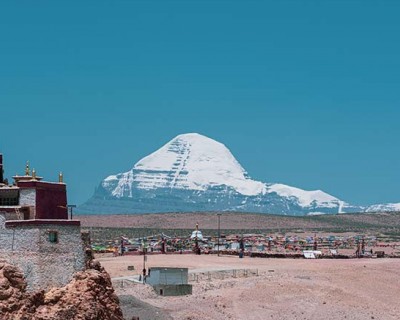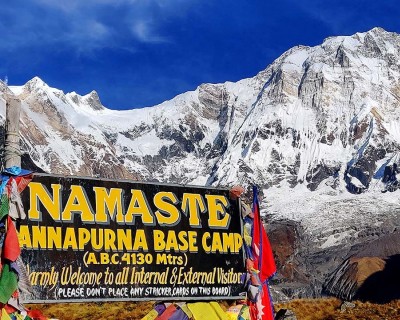Fitness Required for the Everest Base Camp Trek
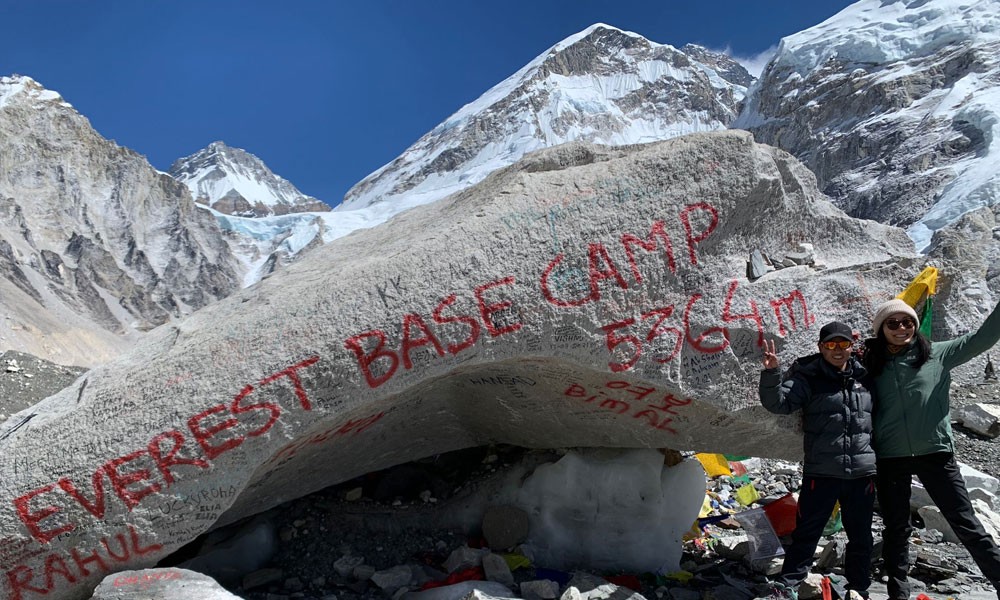
Although you don’t need to be in a pro-level athlete shape, you are recommended to have at least a basic fitness level and good health conditions for this trek. Manky trekking agencies claim that any physical fitness level is fine as long as you have the drive and determination to complete the adventure.
However, to be realistic, it is only possible with the proper amount of preparation because altitude sickness in this high-altitude adventure is a real deal. Although your passion for soaking in the magnificence of the Himalayas up close may drive you to partake in this adventure, if you are not physically capable, you may have to call it quits midway.
Trekking about 53 km (33 miles) from Lukla to Everest Base Camp, you will cover about 106 km (66 miles) of distance in this expedition. You will trek for approximately around 6-7 hours on average in this adventure to the Himalayas, it can be really hard to cover this much distance in high altitude environment if you don’t have good physical capabilities, especially in the strenuous steep segments.
The routes, especially from Monjo to Namche Bazaar and Pugi Thanga to Tengboche, test your endurance and limits. Similarly, the strenuous hike up to Kalapatthar, the highest elevation point of this trekking expedition, at 5,545 meters elevation, is certainly not an easy day’s trek.
So, to answer the question, what type of physical fitness is required for the Everest Base Camp Trek, a person with a moderate fitness level and sound health could complete this could easily complete this expedition with enough prep time.
If you work out on a daily basis or are an athlete, like a swimmer or a runner, then you are perfectly fit for this adventure to the foothills of the highest mountain in the world. But, if you don’t put too much effort into physical activities, then you should follow the recommended preparation plans and focus on strength, endurance, and cardiovascular training. This way, you will be able to immerse in the exploration of the Himalayas without worrying about anything, boosting your morale.
How to Train for Everest Base Camp Trek?
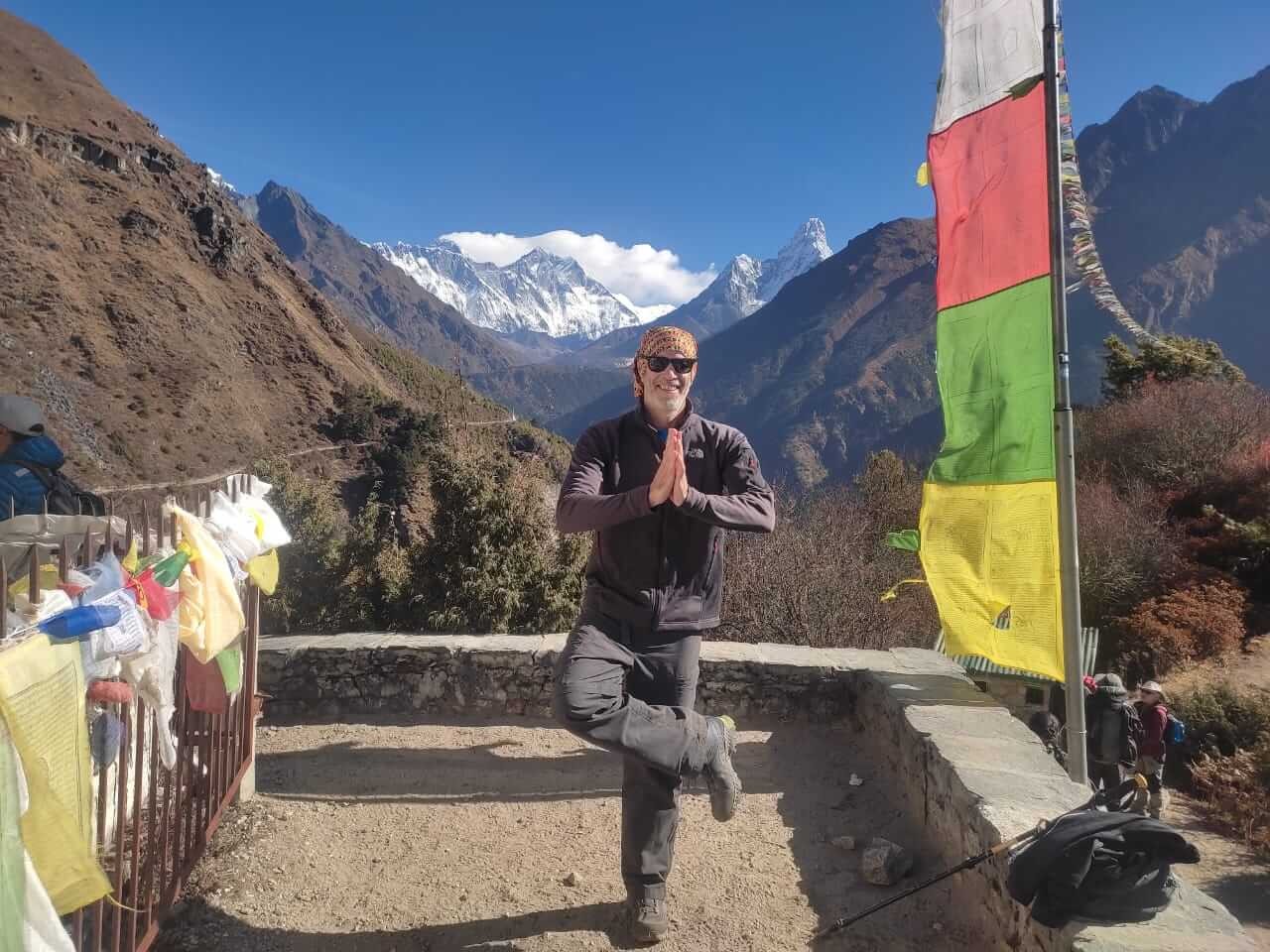
While preparing for the Everest Base Camp trek, you need to emphasize the stamina, endurance, and strength factors. There are also several other factors that can contribute to a more convenient trekking experience, like meditation, aerobics, and breathing exercises.
It will be best if you start preparing for this high-altitude trekking at least 8-12 weeks prior to the adventure.
1. Hiking Practise
As most trekking experts recommend at least running or training for 3-4 hours every day in the preparation period before the trek. But, it will be also best if you can hike on a natural trail wearing your hiking boots and carrying at least 10kg worth of rucksack or backpack.
In your regular 12-Day Everest Base Camp Trek, you will typically be trekking on the diverse landscape of the Himalayas for 8 long days. With the practice hikes, you will get accustomed to the slow-paced uphill ascend and downhill trek; this way, you will also be able to understand your strength and weakness.
Thus, not only this will work as a preliminary ground for the upcoming adventure, but you will also be able to understand your limit and what strength or endurance program suits best for you.
P.S. Carrying the luggage with considerable weight in the practice hike will prepare you for the longer days of trekking carrying your backpack in the Everest region. And the comfort of hiking boots is a major factor that shouldn’t be underestimated.
2. Strength Training
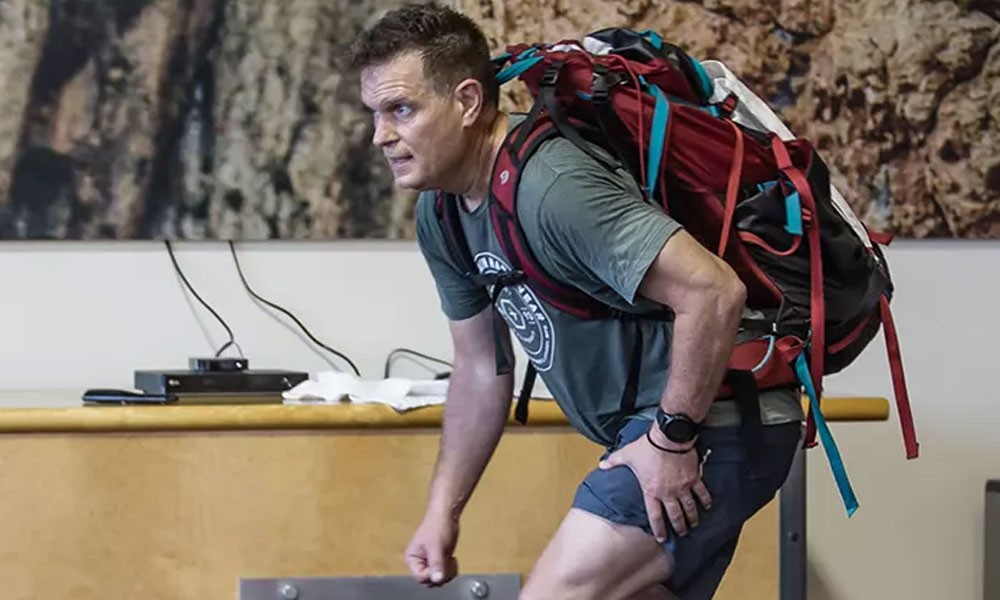
In this high-altitude adventure, adding strength training to your preparation regime is pretty much mandatory. Strength training doesn’t only improve your cardiovascular health but also improves your overall bone strength, flexibility, and mobility and keeps your energy at optimum.
So, on your high-altitude adventure to build up endurance and consistently stay mobile and at full strength, it will be best to stick to strength training programs during your preparation. You could include exercises like push-ups, planks, deadlifts, squats, lunges, bench presses, shoulder presses, pull-ups, and bicep curls to improve your core strength.
3. Mental Preparation
As both mental health and physical health are fundamentally linked, your physical preparation will certainly boost your confidence and positive attitude toward the successful completion of the expedition.
You also need to understand that the Everest Base Camp trek is an adventure in the remote part of the Khumbu region, so set realistic expectations and mentally prepare yourself for the discomforts that you might be facing.
Determination and drive to make it all the way through also play a major part when you are in this adventure. That’s how even the people who were not in perfect shape and elderly trekkers in their 60s- 70s successfully completed this high-altitude trekking expedition.
Just stay positive and keep yourself motivated; if you have decided to do this, then see it through to the end.
Everest Base Camp Difficulty
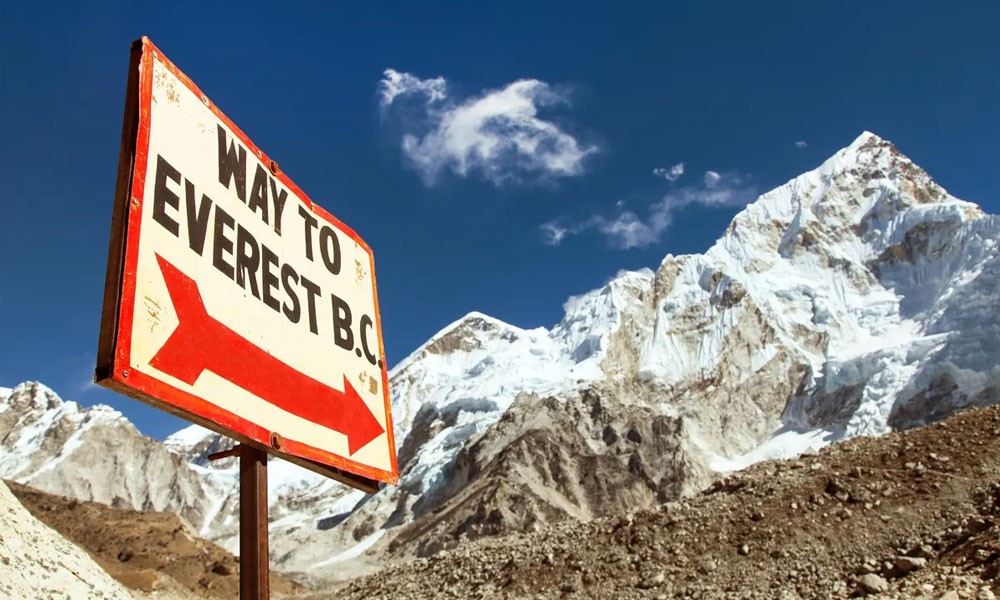 Everest Base Camp trekking has been graded at a ‘moderately difficult’ level; it doesn’t include any technical segment enroute. So, even beginners who don’t have any prior experience in a high-altitude trek can easily complete this journey to the heart of the Khumbu region with the right amount of preparation.
Everest Base Camp trekking has been graded at a ‘moderately difficult’ level; it doesn’t include any technical segment enroute. So, even beginners who don’t have any prior experience in a high-altitude trek can easily complete this journey to the heart of the Khumbu region with the right amount of preparation.
As the oxygen saturation level on this high-altitude trek gradually declines and hits 50% of the average sea level, the acclimatization process plays a vital role. The significant altitude gain from Lukla (2,800 meters) to Everest Base Camp (5,364 meters) and Kalapatthar (5,545 meters) is certainly a big challenge during this trek, but with proper training and enough acclimatization days, it won’t be much of a big deal.
The Everest Base camp trek is a doable trek with a basic/average fitness level and good health condition. If you have any kind of medical condition, you could consult with your physician about trekking. For further assistance or in case you have any queries, feel free to contact us; our travel specialist will get back to you as soon as possible.
For those looking to add an extra layer of challenge and adventure to their Himalayan journey, the Everest Three High Passes Trek is an excellent option. This trek not only includes the classic Everest Base Camp route but also takes you through three of the highest passes in the Everest region, offering breathtaking views and an unparalleled experience of the region's diverse landscapes.
You may also like:




 Everest Base Camp trekking has been graded at a ‘moderately difficult’ level; it doesn’t include any technical segment enroute. So, even beginners who don’t have any prior experience in a high-altitude trek can easily complete this journey to the heart of the Khumbu region with the right amount of
Everest Base Camp trekking has been graded at a ‘moderately difficult’ level; it doesn’t include any technical segment enroute. So, even beginners who don’t have any prior experience in a high-altitude trek can easily complete this journey to the heart of the Khumbu region with the right amount of 